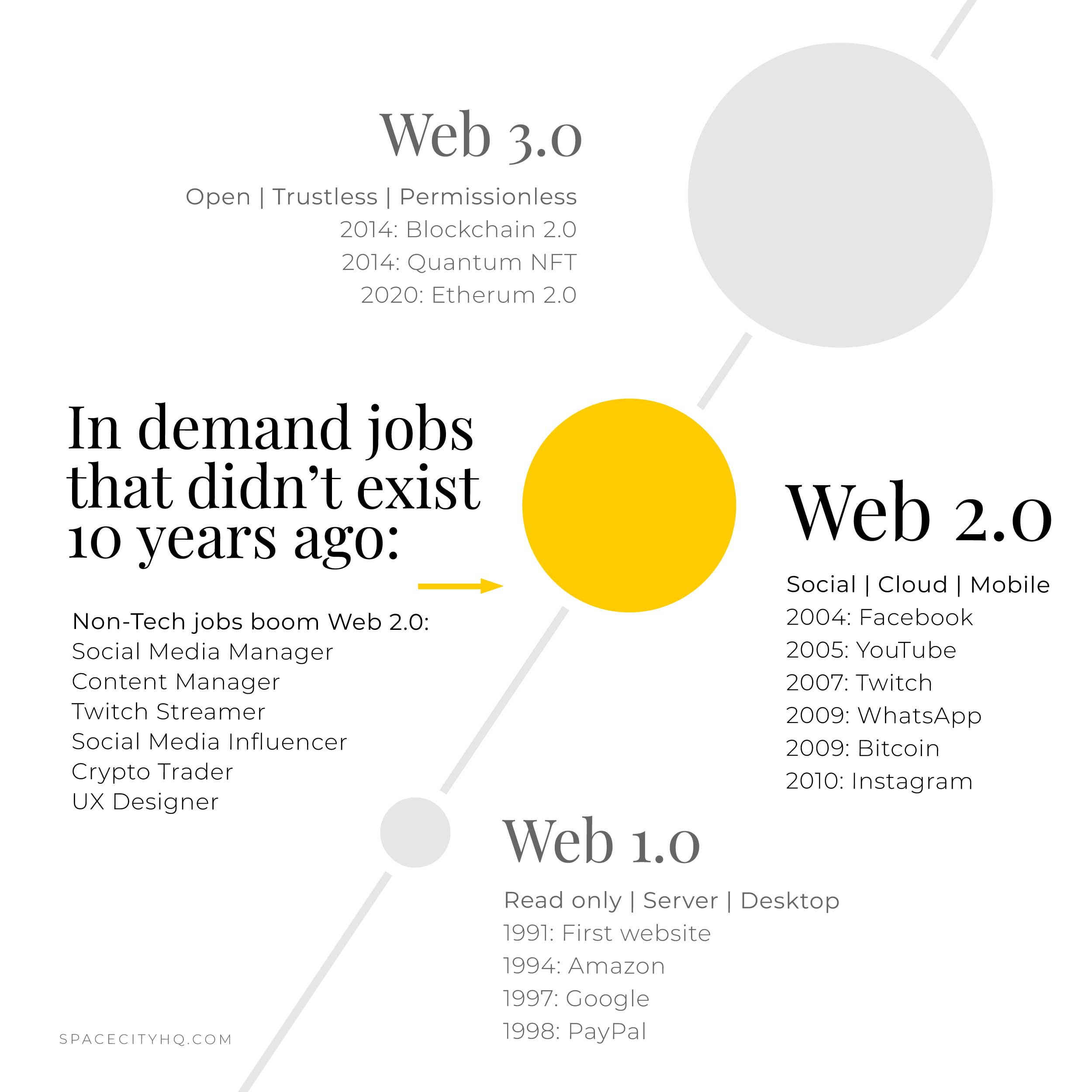


1 Million 'Spacehackers' Programme.
We're on a mission to launch 1 million women space entrepreneurs and help shape a sustainable space industry where everyone, no matter your background or ability, has a fair future.
Inspire generations.
‘Spacehackers’ are the next generation of space entrepreneurs. The industry needs people like you to help the industry grow and create the jobs of the future. From law & ethics, to social impact, and finance, the industry is looking for fresh ideas. Join 1 million women space entrepreneurs and become one of the new leaders of the global space industry.
What is a 'Spacehacker'?
‘Spacehacker‘ is a play on the term ‘growth hacker’. It was created by International Space City to describe someone who uses creative, low-cost strategies to accelerate the commercialisation of the space industry. The term is now widely associated with the new generation of space entrepreneurs.
01 | Why Space? Why Now? Why Me?
Meet your fellow Spacehackers and get an introduction to space and the programme.
02 | Leadership and Attitude
Find your individual leadership style, become comfortable with risk, and use the Hogan method to gain strategic self-awareness.
03 | Business Model Innovation
Avoid the technology trap - how to use disruptive thinking to create, capture and deliver value.
04 | Opportunities in Space
Gain an understanding of the opportunities you can create in an emerging industry.
05 | Responsible Business for Growth
Understand the enduring value of responsible business practices and the 17 Sustainable Development Goals.
06 | Pitch Perfect
Bring it all together to create a feasible business plan and deliver the perfect pitch to attract potential investors and/or customers.
Capstone Project (optional)
As a group or individual create and pitch a space-related business solution that tackles a real-world problem.
What if... the jobs of the future haven't been invented yet?
Many jobs in demand today didn’t exist 5 years ago and World Economic Forum (WEF) found that 50% of all employees will have outdated skills by 2025. We want everyone, whatever your background or ability, to have a future. Like the Internet 20 years ago, Space 4.0 is creating new opportunities for non-technical and non-mechanical jobs. If someone is going to invent the jobs of the future, why can’t it be you?
Many of today’s jobs created for the tech industry don’t require technology or engineering skills.

You don’t have to be a rocket-riding, billionaire, tech unicorn to have a meaningful future in the space industry. Space 4.0 is a new era in our long relationship with space. This is the time to encourage and enable creative thinking to identify the potential jobs of the future and provide support to individuals and organisations to explore their own potential in this emerging industry.
Create the jobs of the future.
Many mainstream jobs today didn’t exist 10 years ago – the same is true for the next 10 years. The questions we ask today will help us create the jobs of tomorrow. How can we harness the power of data generated from space and apply it to practical applications on earth? How can we use law and ethics to control the risk of weaponising space? What can we learn about social impact and apply on Earth and throughout the universe? If the job you want doesn’t exist yet, create it yourself.
Law & Ethics
Who will create regulatory space legislation to deliver the promises of the terms agreed in the Outer Space Treaty (1967)? What frameworks exist to mitigate space debris and light pollution, and to avoid the exploitation of people and space as the sector advances? How will we govern behaviour in the absence of laws?
Social Impact
How can we avoid damaging this planet while exploring others? Can deep space logistics build sustainable supply chains that are people and planet friendly? Are arts & culture critical to humanity and colonisation of space? What does org culture look like in a decentralised workforce and how will this shape talent attraction and retention?
Finance
What will the currency of the future be and what financial structures will it need to be reliable, fair and credible? What regulatory landscape is required? Who will invest in creating the jobs of the future? How can profits contribute to local economic development as people move off-planet?
Scotland is a world leader in sustainable space technology.
50%
We’re on track to cut 50% of space industry emissions by 2030.
2045
Scottish space industry goal to achieve net zero emissions by 2045.
Up to 90% less carbon
is produced by green rocket fuels used by Scottish companies.
The world's first carbon-neutral space port
is in progress at Sutherland in the Scottish Highlands.
50% drop in space sector emissions
will be achieved by 2030 — with a goal to reach net zero by 2045.

